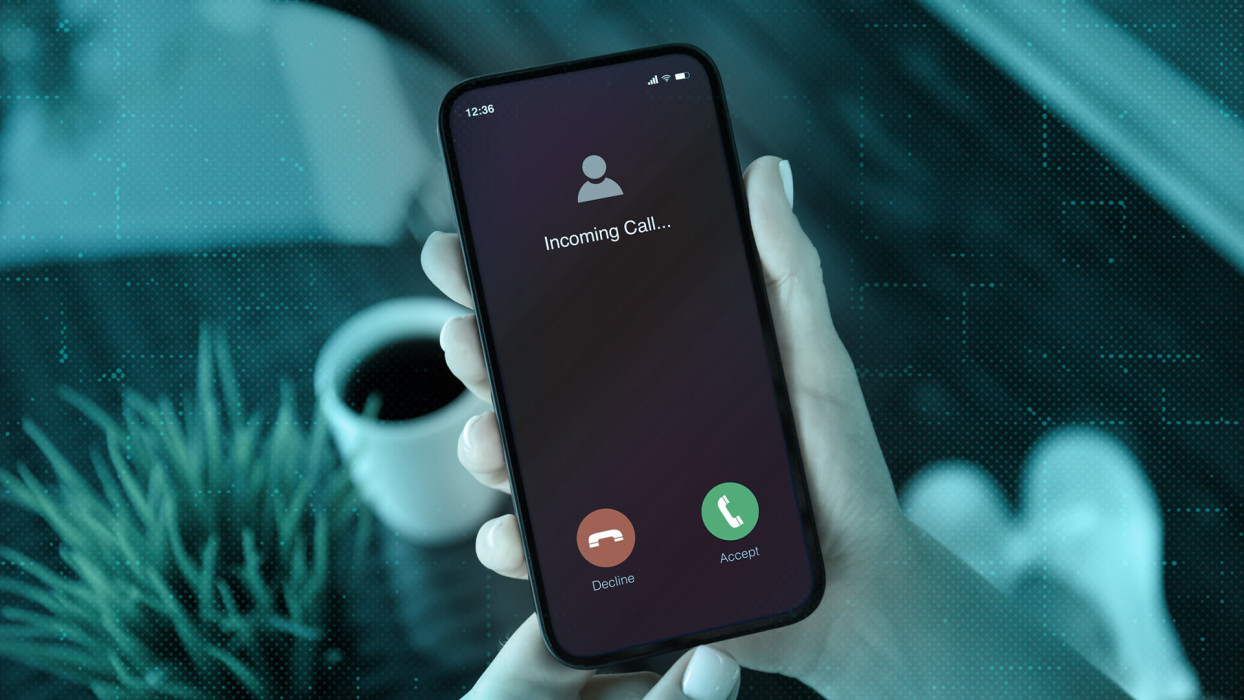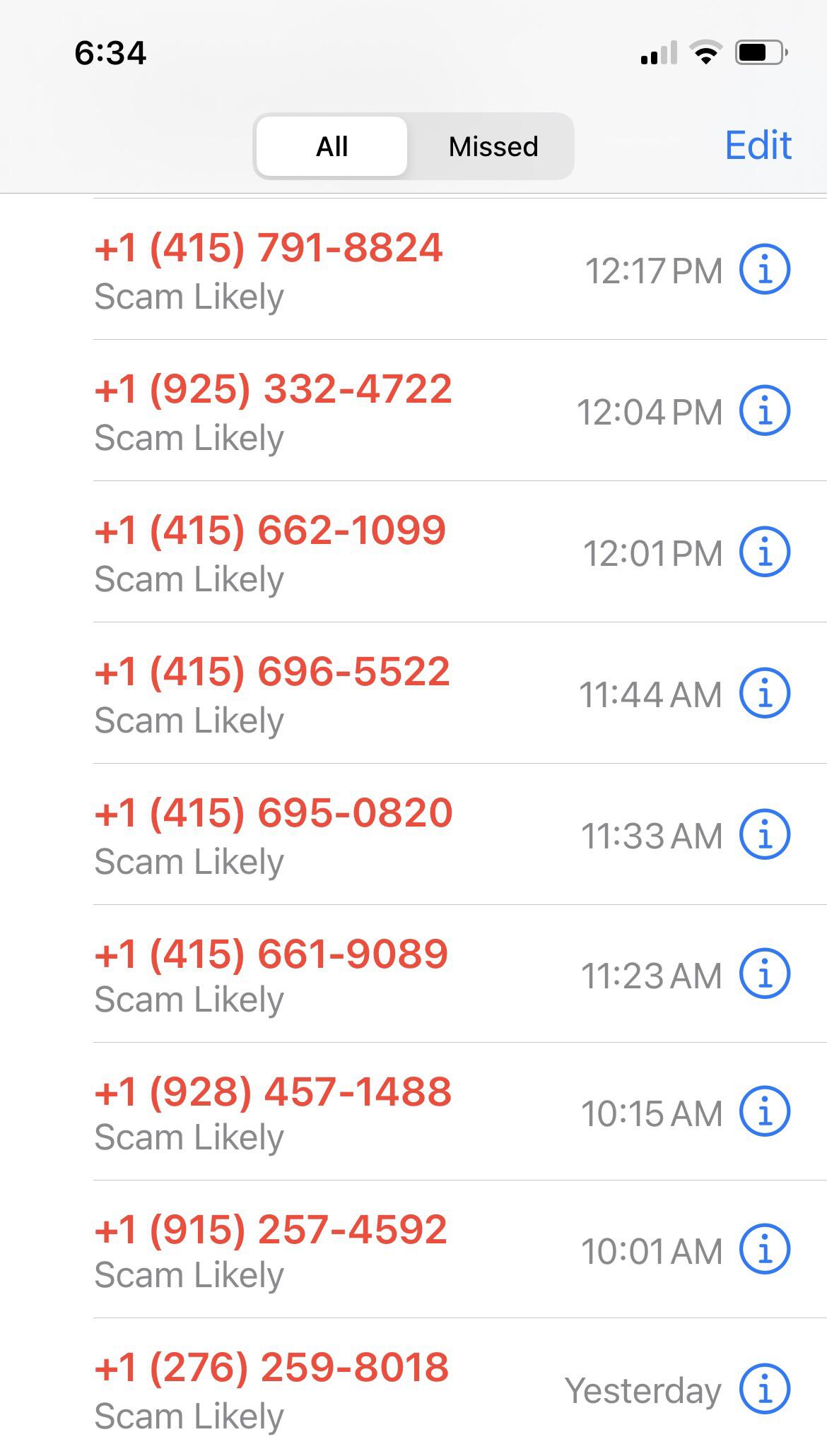Scams
Bored with dodging all these ‘Rip-off Seemingly’ calls? This is what’s behind the label and easy methods to keep one step forward of cellphone scammers.
18 Nov 2024
•
,
5 min. learn

Regardless of all of the wonders of contemporary know-how, it’s typically the outdated ways in which we depend on most. That’s definitely true of communications. We could have e mail, video conferencing, textual content, social media and end-to-end encrypted on the spot messages to select from, however a few of us should still choose the great old school voice.
But scammers know this, and so they know that we could also be most susceptible once we’re talking to somebody. People are pre-programmed to imagine the tales they’re advised. Plus, voice is on the spot, giving us much less time to contemplate our response and extra alternative for the scammer (presumably even after they’re a robocaller) to use basic social engineering strategies.
What does all of this imply? That we have to get higher at managing dodgy cellphone calls.
What does “rip-off doubtless” imply?
You could have come throughout a “rip-off doubtless” label or related on some incoming calls. Because the moniker suggests, this implies your service suspects the individual (or bot) on the different finish of the road has nefarious intent. Different related labels could say issues like “suspected rip-off,” “potential spam” or “potential fraud”.
Telephone firms have varied means at their disposal to evaluate the chance {that a} name is a rip-off or spam. These embody buyer studies, and community analytics – for instance, figuring out if a quantity makes a number of calls to folks on a Do Not Name Record, in fast succession. VoIP calls may be a pink flag. Most operators will then compile these “rip-off doubtless” numbers right into a database to test towards.

 One factor is for certain, you must most likely heed the warning. Analysis reveals that international cellphone fraud and spam reached an all-time excessive final yr. Some 28% of unknown calls have been fraud or spam in 2023, with 16% of customers shedding cash. Though this determine is down from 22% in 2022, common losses rocketed by 527% yearly to $2,257.
One factor is for certain, you must most likely heed the warning. Analysis reveals that international cellphone fraud and spam reached an all-time excessive final yr. Some 28% of unknown calls have been fraud or spam in 2023, with 16% of customers shedding cash. Though this determine is down from 22% in 2022, common losses rocketed by 527% yearly to $2,257.
How did they know my quantity?
Even in case you are on a Do Not Name listing or related, scammers can nonetheless pay money for your quantity. They might:
- scrape it from public social media accounts
- acquire it from a historic knowledge breach of a third-party supplier you share it with
- trick you into handing it over through a phishing e mail
- acquire it from an information dealer – an organization that collects and sells client data
- use automated software program to generate and name random numbers in a particular space code
Counting the associated fee
Whereas 16% of world customers reported shedding cash to cellphone scams in 2023, the determine is even increased in some nations like Germany (19%) and France (18%). It’s additionally costing victims in wasted time. Shoppers declare they spend 9 minutes per week – practically eight hours annually, screening nuisance calls.
What are the principle cellphone scams?
There are a number of events that could be accountable for rip-off cellphone calls: telemarketers who make the calls, “lead mills” who acquire and supply them with numbers, and VoIP firms who facilitate unlawful automated calls generally known as robocalls.
You may encounter any of the next:
- Impersonation scams: Also called a vishing (voice phishing) assault, a scammer will fake to be calling from a authorities company, tech firm, financial institution, utility, police power or different authority. They could declare you owe cash or that they should confirm private data. They might let you know that your funds are at risk and should be transferred to a ‘protected’ account.
- Distant entry/tech help rip-off: A fraudster impersonating a official entity will request that you just grant them entry to your pc, probably with a view to clear up a non-existent malware compromise. The software program you obtain is official however their goals should not. As soon as they’ve bought entry, they’ll search for delicate data like banking logins and/or set up actual malware for persistent entry.
- Funding rip-off: A scammer will make an unsolicited name promising you enormous returns on an funding alternative. The one alternative, in fact, is for the scammer to make cash out of you.
- Prize draw scams: A fraudster calls up out of the blue claiming you’ve gained a non-existent prize, and that to say it it’s essential pay a small quantity of ‘tax’ and/or hand over some private data.
- Telemarketing calls: These may merely be spam calls from official telemarketers, or extra nefarious makes an attempt to promote you overpriced or faux services and products.
- Robocalls: Some automated calls are authorized and generally is a helpful, low-cost approach for healthcare suppliers to remind sufferers about appointments, or for political entities to solicit donations, for instance. Nonetheless, additionally they allow cellphone scams on an enormous scale. In 2023, the US Federal Commerce Fee (FTC) acquired 1.2 million complaints about robocalls. Though this was down from 1.8 million in 2022, the actual variety of spam or rip-off robocalls is more likely to be far, far increased.
keep protected from rip-off calls
The best solution to insulate your self from rip-off calls is to heed the warning label offered by your service. You should use the identical tactic for any unknown quantity. In spite of everything, if it’s a official caller, they may doubtless depart a voicemail message. Nonetheless, it may be a tedious enterprise screening massive volumes of potential spam/rip-off calls. Different techniques may embody:
- Signing as much as the Do Not Name registry (or related): Many nations run nationwide registers like this, that are designed to cease most official telemarketers from calling. There are apparently over 249 million actively registered cellphone numbers on the US DNC register.
- Contacting knowledge brokers: These shadowy third events play a vital function within the cellphone rip-off ecosystem. You can contact them direct and comply with their opt-out processes.
- Blocking identified spam numbers: If you happen to do decide up and it’s a rip-off or spam, you’ll be able to ensure you don’t hear from that quantity once more by blocking it:
- In iOS: Go to Recents, faucet the “i” icon, scroll down and hit Block Caller.
- On Android: Open your Telephone app, faucet the three dots, navigate to Name historical past, and faucet a name from the quantity you need to block. Faucet Block / report spam. You can too arrange a name filter in your cellular safety resolution of alternative.
It goes with out saying that you must by no means hand out private or monetary data over the cellphone, or permit somebody to remotely obtain software program to your pc.
What’s the federal government doing?
It was predicted final yr that the associated fee of fraudulent robocalls to victims would improve 9% yearly to achieve $58bn globally in 2023. That ought to make it a matter of precedence for governments to cope with. Within the US, the regulator has in recent times issued multimillion-dollar fines towards robocall corporations, VoIP suppliers and rip-off firms.
Nonetheless, regardless of the possibly main penalties for scammers, the rewards are sometimes too massive to withstand. For that motive, it’s finest to take issues into your personal fingers, and contemplate rethinking the way you deal with nuisance cellphone calls.


Your article helped me a lot, is there any more related content? Thanks!